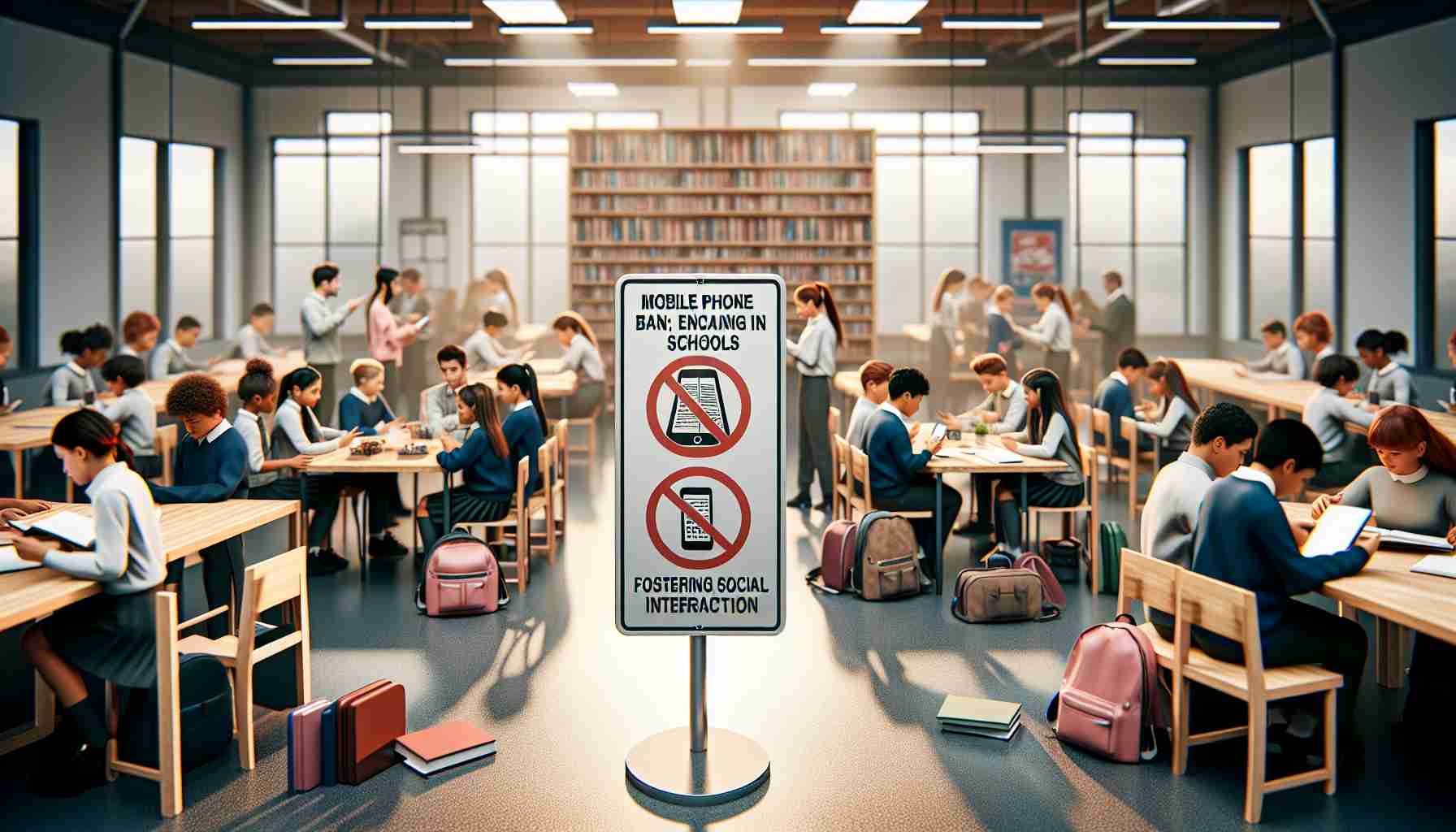In a recent development, the Government has taken a firm stance on the use of mobile phones in schools across England. This move aligns us with countries like France, Italy, and Portugal, who have already implemented a ban. It is backed by a significant body of research linking excessive screen time to negative outcomes for children.
The use of smartphones in a school context has proven to be highly distracting for both students and teachers. Even momentary distractions can accumulate to significant hours of lost learning over an extended period. Moreover, mobile phones have been found to act as barriers to social interaction, leaving children feeling isolated and lonely during crucial moments of friendship formation.
The new guidance from the Department for Education empowers headteachers to ban the use of mobile phones throughout the school day, including break times. This measure intends to address disruptive behavior and online bullying, while also enhancing students’ attention during lessons. Importantly, schools maintain the autonomy to implement the ban in a way that best suits their students’ specific needs. Reasonable exemptions can be made, particularly for students with medical conditions.
This commitment to providing excellent education for all children, regardless of their background, aligns with the core values of the Conservative party. The government’s previous efforts to reform the education system have resulted in notable improvements. England’s ranking in the PISA assessments has risen significantly over the years, and investments in schools have reached unprecedented levels.
By addressing the challenges faced by teachers, this mobile phone ban announcement marks a significant step forward. It provides educators with additional tools to improve behavior in schools, fostering a brighter future for our young people. As we continue to adapt to the evolving landscape of education, the government remains committed to delivering a world-class education for the next generation.
FAQ Section:
1. Why has the government implemented a ban on mobile phones in schools?
– The government has implemented a ban on mobile phones in schools due to research linking excessive screen time to negative outcomes for children. The use of smartphones in schools has been found to be highly distracting and can result in significant hours of lost learning.
2. Which countries have already implemented a ban on mobile phones in schools?
– Countries like France, Italy, and Portugal have already implemented a ban on mobile phones in schools.
3. What are the potential negative effects of mobile phone use in schools?
– Mobile phones can act as barriers to social interaction, leaving children feeling isolated and lonely during crucial moments of friendship formation. They can also contribute to disruptive behavior and online bullying.
4. What does the new guidance from the Department for Education empower headteachers to do?
– The new guidance empowers headteachers to ban the use of mobile phones throughout the school day, including break times. They have the autonomy to implement the ban in a way that best suits their students’ specific needs, with reasonable exemptions for students with medical conditions.
5. How does this mobile phone ban align with the core values of the Conservative party?
– This mobile phone ban aligns with the core values of the Conservative party by ensuring excellent education for all children, regardless of their background. The government’s previous education reforms have led to improvements in England’s ranking in PISA assessments and increased investments in schools.
Definitions:
– Mobile phones: Portable electronic devices that allow communication, access to the internet, and various other functions.
– Disruptive behavior: Behavior that interrupts or disturbs the learning environment or the normal functioning of a school.
– Online bullying: The act of using electronic communication tools, such as social media or messaging platforms, to harass, intimidate, or hurt others.
Suggested Related Links:
– Department for Education
– Conservative Party
The source of the article is from the blog maltemoney.com.br
